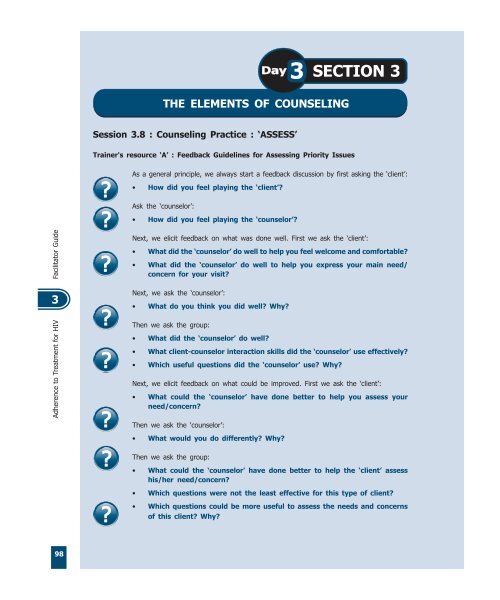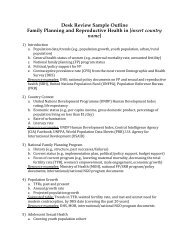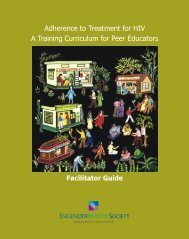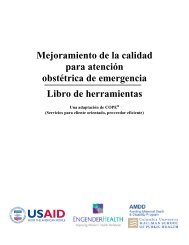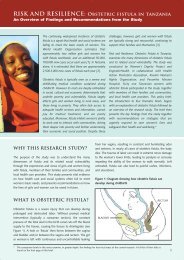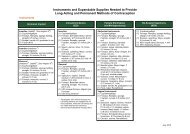Facilitator Guide - EngenderHealth
Facilitator Guide - EngenderHealth
Facilitator Guide - EngenderHealth
- No tags were found...
You also want an ePaper? Increase the reach of your titles
YUMPU automatically turns print PDFs into web optimized ePapers that Google loves.
3SECTION 3THE ELEMENTS OF COUNSELINGSession 3.8 : Counseling Practice : ‘ASSESS’Trainer's resource ‘A’ : Feedback <strong>Guide</strong>lines for Assessing Priority IssuesAs a general principle, we always start a feedback discussion by first asking the ‘client’:• How did you feel playing the ‘client’?Ask the ‘counselor’:• How did you feel playing the ‘counselor’?<strong>Facilitator</strong> <strong>Guide</strong>3Adherence to Treatment for HIVNext, we elicit feedback on what was done well. First we ask the ‘client’:• What did the ‘counselor’ do well to help you feel welcome and comfortable?• What did the ‘counselor’ do well to help you express your main need/concern for your visit?Next, we ask the ‘counselor’:• What do you think you did well? Why?Then we ask the group:• What did the ‘counselor’ do well?• What client-counselor interaction skills did the ‘counselor’ use effectively?• Which useful questions did the ‘counselor’ use? Why?Next, we elicit feedback on what could be improved. First we ask the ‘client’:• What could the ‘counselor’ have done better to help you assess yourneed/concern?Then we ask the ‘counselor’:• What would you do differently? Why?Then we ask the group:• What could the ‘counselor’ have done better to help the ‘client’ assesshis/her need/concern?• Which questions were not the least effective for this type of client?• Which questions could be more useful to assess the needs and concernsof this client? Why?98


